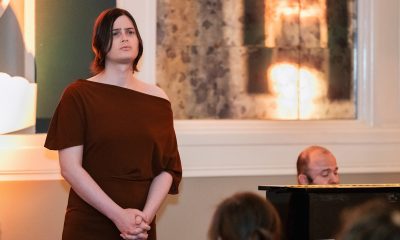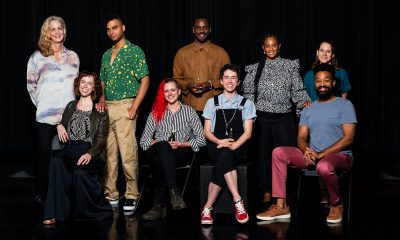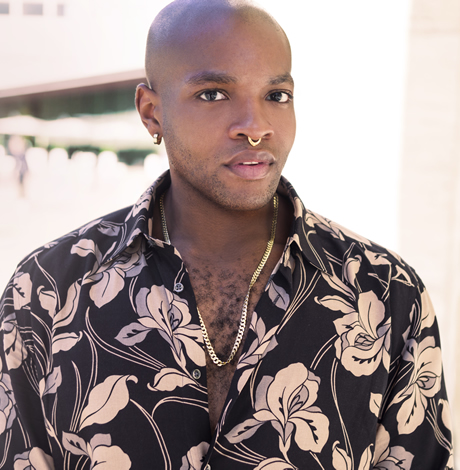Arts & Entertainment
Opera siren
Lesbian soprano Patricia Racette on ‘Tosca,’ being out and her life off the stage
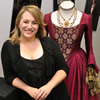
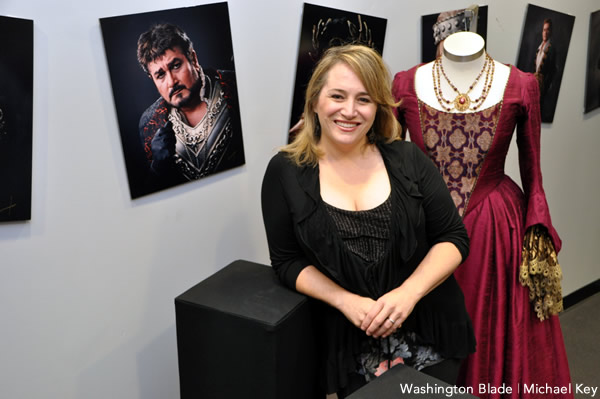
‘Tosca’ lead Patricia Racette at Washington National Opera’s rehearsal space in a Takoma Park warehouse. (Washington Blade photo by Michael Key)
Hardcore opera fans may quibble at the repetition, but hang around D.C. long enough and there’s a chance to see just about any standard-canon opera you can think of. Washington National Opera, now not-so-strange bedfellows with the Kennedy Center, kicked off its fall season last weekend with the Puccini warhorse “Tosca” with lesbian Patricia Racette in the title role.
Racette, who lives with her partner (mezzo soprano Beth Clayton) in Santa Fe, is hunkered down for the day at the Opera’s mammoth rehearsal/storage space in Takoma Park a few Mondays ago. Though dressed casually, she’s made up and coiffed as some of her afternoon press rounds are on camera.
Down several long hallways and through a giant costume room that looks like it could dress the entire cast of “Ben-Hur” and then some, Racette settles into a small and dingy library where CDs, VHS tapes and songbooks line the walls. During a 45-minute conversation, she riffs on her life off stage, the logistics of making it through live performance and why the stage, as opposed to the studio, is where she feels most alive musically.
Together for more than a decade and married since 2005, Racette says she and Clayton find a way to make their marriage work despite two busy careers that by necessity involve significant travel. Once several years ago they didn’t see each other for almost seven weeks.
“It was absolute torture,” Racette says. “Torture.”
Racette is developing a following in Washington. She was here in May for “Iphigenie en Tauride” (Gluck) after previous appearances in 2007 for “Jenufa” and 2009 as Ellen in “Peter Grimes,” all with WNO.
Though it half-heartedly reviewed the production, the Post called Racette’s “Tosca” performance “luminous” and “compelling” and praised her stamina and vocal authority in “Iphigenie.”
Racette calls singing opera akin to surfing.
“I mean it’s a fine art and it’s called a fine art for a very, very good reason because it takes a lot of study, a lot of concentration, a lot of precision and it’s ongoing. As long as you’re a singer, you’re tidying up and you’re working on these things. I don’t worry if I’m gonna hit the note, that’s not my thing. But you have to have everything in line and as fluid as possible because it’s true, once you get there, you’ve got that one chance and boom. It’s not like practicing when you say, “OK, out of those four tries, I hit it once. It’s like a very intricate, very involved surfing. You know you want to hit the wave as absolutely best you can. Do you hit it that way every time? Absolutely not, but you do the best you can. … I’ve seen other singers where they just didn’t get there and there’s a whole other level of mental angst with that but that’s not my typical issue.”
Do some singers channel a non-verbal signal to the audience that they might not hit the note, whether they know they will or not? Is it a way of contriving some suspense in the performance?
“I think some of it is milked,” she says, “but some of it is really real. When you come to the climax of “Vissi d’arte” (one of her “Tosca” arias), you’re taking your spring and jumping over the canyon, so you have to have all your faculties composed. It’s not something that just comes out, like la la la. It’s not but I think if you make it seem like that kind of moment, I think the audience feels almost robbed from the experience. I’ve been playing Judy Garland at Carnegie Hall and she hits this belty high note and it’s so exciting because she kind of falters for one second and there’s a part where she kind of misses it for a split second, but then regains it and that’s almost more interesting than perfection itself.”
It’s why Racette has almost zero interest in recording any of her signature roles.
“I did a little at the beginning of my career and I hated it. I’d rather have a root canal … To me that has nothing to do with music making or the art form. I want the audience’s energy, I don’t want to be there in that test tube of perfection. For me, it just took all the joy, all the magic out of it and I have no interest in it whatsoever.”
But what about legacy?
“You mean like in 50 years, Patricia who,” she says, with a hearty laugh.
Isn’t there a time and place to get it down just right?
“I guess so, but it’s not accurate. It never was accurate, it never will be accurate. That’s not the way we are. The excitement of live performance, both for the performer and the audience is that aspect, it’s live, it’s right now, you get that one chance at that note and, oh God, yes, that was fantastic, or ooh, ooh, that was a little bit off but, it involves the audience, it keeps them on that ride.”
Racette’s humble New Hampshire beginnings have been oft-noted. She calls her family and upbringing “not remotely” musical and “steeped in ignorance,” especially about opera. She grew up listening to Barbra Streisand and Donna Summer and as a self-taught guitarist started writing her own songs as “sort of a Joni Mitchell-type thing.”
She started taking a few voice lessons because she knew she’d need an audition tape for college. Though not classically steeped to any degree, she knew studying music in college would require exploring some of that. She envisioned either a guitar-and-clogs kind of singer/songwriter career or later, perhaps something jazzy like “a Manhattan Transfer-kind-of thing.”
Racette, now 46, calls her 18-year-old self, “Green — as green as they come.”
She cried for three days when her vocal teacher told her bread and butter would be in opera. Her raw vocal talent was just naturally best suited for it. She detested her salon piece (Handel’s “Oh Had I Jubal’s Lyre”) but sprawled out on her apartment floor listening to a record of Renata Scotto singing “Suor Angelica” ignited a passion within her. She laughs about it now.
“I had envisioned this rather simple, rather short sighted thing,” she says. “I didn’t know how to plan the life I have.”
In the operatic designations, Racette is a full, lyric soprano. She bristles slightly at too much emphasis on these categories as they can be confining. LGBT labels, though, don’t bother her at all.
“Oh, it’s very clear to me that I’m a lesbian,” she says. “I’m out and proud because the alternative is to be secretive and ashamed and I just can’t imagine behaving that way about the best thing in my life.”
Racette embraces her off-stage life and prides herself on wearing overalls, owning a toolbox and getting her hands dirty in construction projects, such as the Santa Fe house she and Clayton recently had finished.
“Oh are you kidding,” she says. “I’m on the roof and I’m checking things out, asking the questions. I’m very involved with that sort of thing. I’m very earthy in that way and very down to earth most of the time when I’m off the clock. No one can even imagine I do what I do. I’m never the leading lady then, I don’t have that hat on. It’s just not the sort of energy I have.”
And are lesbian opera divas anomalies?
“I think there are about 13 of us at last count,” she says. “But not all of them are out.”
And the men?
“Ehhh, it’s a pretty gay world,” she says.
She concludes her remarks with a knowing chuckle.
“A lot of the men singers are straight but yeah, most of my hair and makeup are my gays, which is as it should be I think.”
BOX INFO:
‘Tosca’
Washington National Opera at the Kennedy Center
2700 F Street, N.W.
Tonight, Sunday matinee, Tuesday, Thursday and Sept. 23-24 performances remain (Natalia Ushakova sings the lead Sept. 23)
In Italian with English subtitles
$55
202-467-4600 or kennedy-center.org
Out & About
The Rare Book Fair is coming to D.C.
Over 35 antiquarian booksellers from across the country to attend
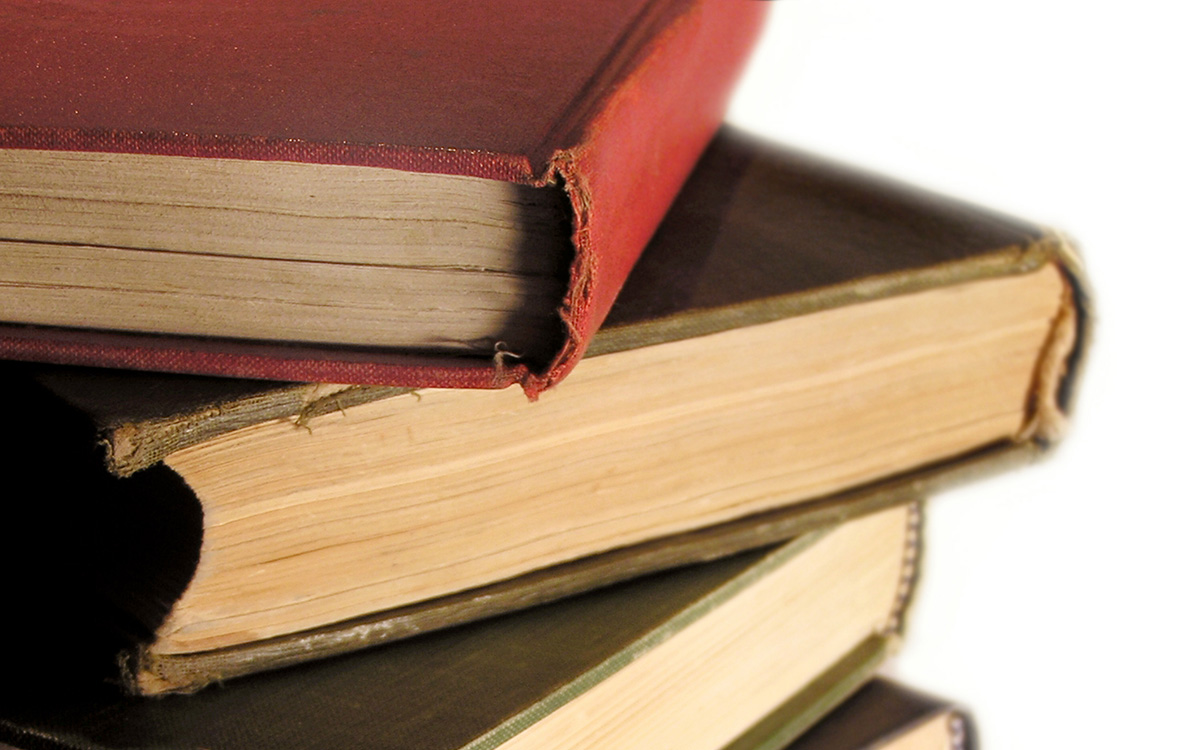
The Capital Rare Book Fair will bring more than 35 antiquarian booksellers from across the country to D.C. from Friday, May 3 to Sunday, May 5 at the historic University Club at 1135 16th St., N.W.
This year, the fair will take over two floors in the illustrious mansion on 16th Street and showcase thousands of beautiful, notable, and rare books, maps, and historic documents from around the globe. Exceptional examples that will be offered include leaf 27 of a 40-leaf xylographic Biblia pauperum, a picture Bible from 1465 for $85,000 from Bruce McKittrick Rare Books, among many other intriguing selections.
Tickets are $50 and more information is available on the event’s website.

Friday, April 19
Center Aging Friday Tea Time will be at 2 p.m. on Zoom. This is a social hour for older LGBTQ adults. Guests are encouraged to bring a beverage of choice. For more information, email [email protected].
Go Gay DC will host “Drag Pageant” at 8 p.m. at Freddie’s Beach Bar and Restaurant. Net proceeds from this event will benefit EQUALITY NoVa, the local nonprofit organization dedicated to advancing equality in Northern Virginia. Attendance is free and more details are available on Eventbrite.
Saturday, April 20
LGBTQ People of Color Support Group will be at 1 p.m. on Zoom. This peer support group is an outlet for LGBTQ People of Color to come together and talk about anything affecting them in a space that strives to be safe and judgment free. For more details, visit thedccenter.org/poc or facebook.com/centerpoc.
Go Gay DC will host “LGBTQ+ Brunch” at 11 a.m. at Freddie’s Beach Bar & Restaurant. This fun weekly event brings the DMV area LGBTQ community, including allies, together for delicious food and conversation. Attendance is free and more details are available on Eventbrite.
Sunday, April 21
Go Gay DC will host “LGBTQ+ Dinner” at 7 p.m. at Federico Ristorante Italiano. Attendance is free and more details are available on Eventbrite.
AfroCode DC will be at 4 p.m. at Decades DC. This event will be an experience of non-stop music, dancing, and good vibes and a crossover of genres and a fusion of cultures. Tickets cost $40 and can be purchased on Eventbrite.
Monday, April 22
Center Aging: Monday Coffee & Conversation will be at 10 a.m. on Zoom. This is a social hour for older LGBTQ adults. Guests are encouraged to bring a beverage of their choice. For more details, email [email protected].
Tuesday, April 23
Pride on the Patio Events will host “LGBTQ Social Mixer” at 5:30 p.m. at Showroom. Dress is casual, fancy, or comfortable. Guests are encouraged to bring their most authentic self to chat, laugh, and get a little crazy. Admission is free and more details are on Eventbrite.
Genderqueer DC will be at 7 p.m. on Zoom. This is a support group for people who identify outside of the gender binary. Whether you’re bigender, agender, genderfluid, or just know that you’re not 100% cis. For more details, visit genderqueerdc.org or Facebook.
Wednesday, April 24
Job Club will be at 6 p.m. on Zoom. This is a weekly job support program to help job entrants and seekers, including the long-term unemployed, improve self-confidence, motivation, resilience and productivity for effective job searches and networking — allowing participants to move away from being merely “applicants” toward being “candidates.” For more information, email [email protected] or visit [email protected].
Asexual and Aromantic Group will be at 7 p.m. on Zoom. This is a space where people who are questioning this aspect of their identity or those who identify as asexual and/or aromantic can come together, share stories and experiences, and discuss various topics. For more details, email [email protected].
Thursday, April 25
The DC Center’s Fresh Produce Program will be held all day at the DC Center for the LGBT Community. People will be informed on Wednesday at 5:00 pm if they are picked to receive a produce box. No proof of residency or income is required. For more information, email [email protected] or call 202-682-2245.
Virtual Yoga with Charles M. will be at 7 p.m. on Zoom. This is a free weekly class focusing on yoga, breath work, and meditation. For more details, visit the DC Center for the LGBT Community’s website.
Movies
After 25 years, a forgotten queer classic reemerges in 4K glory
Screwball rom-com ‘I Think I Do’ finds new appreciation

In 2024, with queer-themed entertainment available on demand via any number of streaming services, it’s sometimes easy to forget that such content was once very hard to find.
It wasn’t all that long ago, really. Even in the post-Stonewall ‘70s and ‘80s, movies or shows – especially those in the mainstream – that dared to feature queer characters, much less tell their stories, were branded from the outset as “controversial.” It has been a difficult, winding road to bring on-screen queer storytelling into the light of day – despite the outrage and protest from bigots that, depressingly, still continues to rear its ugly head against any effort to normalize queer existence in the wider culture.
There’s still a long way to go, of course, but it’s important to acknowledge how far we’ve come – and to recognize the efforts of those who have fought against the tide to pave the way. After all, progress doesn’t happen in a vacuum, and if not for the queer artists who have hustled to bring their projects to fruition over the years, we would still be getting queer-coded characters as comedy relief or tragic victims from an industry bent on protecting its bottom line by playing to the middle, instead of the (mostly) authentic queer-friendly narratives that grace our screens today.
The list of such queer storytellers includes names that have become familiar over the years, pioneers of the “Queer New Wave” of the ‘90s like Todd Haynes, Gus Van Sant, Gregg Araki, or Bruce LaBruce, whose work at various levels of the indie and “underground” queer cinema movement attracted enough attention – and, inevitably, notoriety – to make them known, at least by reputation, to most audiences within the community today.
But for every “Poison” or “The Living End” or “Hustler White,” there are dozens of other not-so-well-remembered queer films from the era; mostly screened at LGBTQ film festivals like LA’s Outfest or San Francisco’s Frameline, they might have experienced a flurry of interest and the occasional accolade, or even a brief commercial release on a handful of screens, before slipping away into fading memory. In the days before streaming, the options were limited for such titles; home video distribution was a costly proposition, especially when there was no guarantee of a built-in audience, so most of them disappeared into a kind of cinematic limbo – from which, thankfully, they are beginning to be rediscovered.
Consider, for instance, “I Think I Do,” the 1998 screwball romantic comedy by writer/director Brian Sloan that was screened last week – in a newly restored 4K print undertaken by Strand Releasing – in Brooklyn as the Closing Night Selection of NewFest’s “Queering the Canon” series. It’s a film that features the late trans actor and activist Alexis Arquette in a starring, pre-transition role, as well as now-mature gay heartthrob Tuc Watkins and out queer actor Guillermo Diaz in supporting turns, but for over two decades has been considered as little more than a footnote in the filmographies of these and the other performers in its ensemble cast. It deserves to be seen as much more than that, and thanks to a resurgence of interest in the queer cinema renaissance from younger film buffs in the community, it’s finally getting that chance.
Set among a circle of friends and classmates at Washington, D.C.’s George Washington University, it’s a comedic – yet heartfelt and nuanced – story of love left unrequited and unresolved between two roommates, openly gay Bob (Arquette) and seemingly straight Brendan (Christian Maelen), whose relationship in college comes to an ugly and humiliating end at a Valentine’s Day party before graduation. A few years later, the gang is reunited for the wedding of Carol (Luna Lauren Vélez) and Matt (Jamie Harrold), who have been a couple since the old days. Bob, now a TV writer engaged to a handsome soap opera star (Watkins), is the “maid” of honor, while old gal pals Beth (Maddie Corman) and Sarah (Marianne Hagan), show up to fill out the bridal party and pursue their own romantic interests. When another old friend, Eric (Diaz), shows up with Brendan unexpectedly in tow, it sparks a behind-the-scenes scenario for the events of the wedding, in which Bob is once again thrust into his old crush’s orbit and confronted with lingering feelings that might put his current romance into question – especially since the years between appear to have led Brendan to a new understanding about his own sexuality.
In many ways, it’s a film with the unmistakable stamp of its time and provenance, a low-budget affair shot at least partly under borderline “guerilla filmmaking” conditions and marked by a certain “collegiate” sensibility that results in more than a few instances of aggressively clever dialogue and a storytelling agenda that is perhaps a bit too heavily packed. Yet at the same time, these rough edges give it a raw, DIY quality that not only makes any perceived sloppiness forgivable, but provides a kind of “outsider” vibe that it wears like a badge of honor. Add to this a collection of likable performances – including Arquette, in a winning turn that gets us easily invested in the story, and Maelen, whose DeNiro-ish looks and barely concealed sensitivity make him swoon-worthy while cementing the palpable chemistry between them – and Sloan’s 25-year-old blend of classic Hollywood rom-com and raunchy ‘90s sex farce reveals itself to be a charming, wiser-than-expected piece of entertainment, with an admirable amount of compassion and empathy for even its most stereotypical characters – like Watkins’ soap star, a walking trope of vainglorious celebrity made more fully human than appearances would suggest by the actor’s honest, emotionally intelligent performance – that leaves no doubt its heart is in the right place.
Sloan, remarking about it today, confirms that his intention was always to make a movie that was more than just frothy fluff. “While the film seems like a glossy rom-com, I always intended an underlying message about the gay couple being seen as equals to the straight couple getting married,” he says. “ And the movie is also set in Washington to underline the point.”
He also feels a sense of gratitude for what he calls an “increased interest from millennials and Gen Z in these [classic queer indie] films, many of which they are surprised to hear about from that time, especially the comedies.” Indeed, it was a pair of screenings with Queer Cinema Archive that “garnered a lot of interest from their followers,” and “helped to convince my distributor to bring the film back” after being unavailable for almost 10 years.
Mostly, however, he says “I feel very lucky that I got to make this film at that time and be a part of that movement, which signaled a sea change in the way LGBTQ characters were portrayed on screen.”
Now, thanks to Strand’s new 4K restoration, which will be available for VOD streaming on Amazon and Apple starting April 19, his film is about to be accessible to perhaps a larger audience than ever before.
Hopefully, it will open the door for the reappearance of other iconic-but-obscure classics of its era and help make it possible for a whole new generation to discover them.
-

 Africa5 days ago
Africa5 days agoCongolese lawmaker introduces anti-homosexuality bill
-

 District of Columbia2 days ago
District of Columbia2 days agoReenactment of first gay rights picket at White House draws interest of tourists
-

 District of Columbia1 day ago
District of Columbia1 day agoNew D.C. LGBTQ+ bar Crush set to open April 19
-

 World5 days ago
World5 days agoOut in the World: LGBTQ news from Europe and Asia

